Research reveals that 59% of adults consume alcohol at least once a week, but growing numbers are making positive changes to their drinking habits but growing numbers are making positive changes to their drinking habits
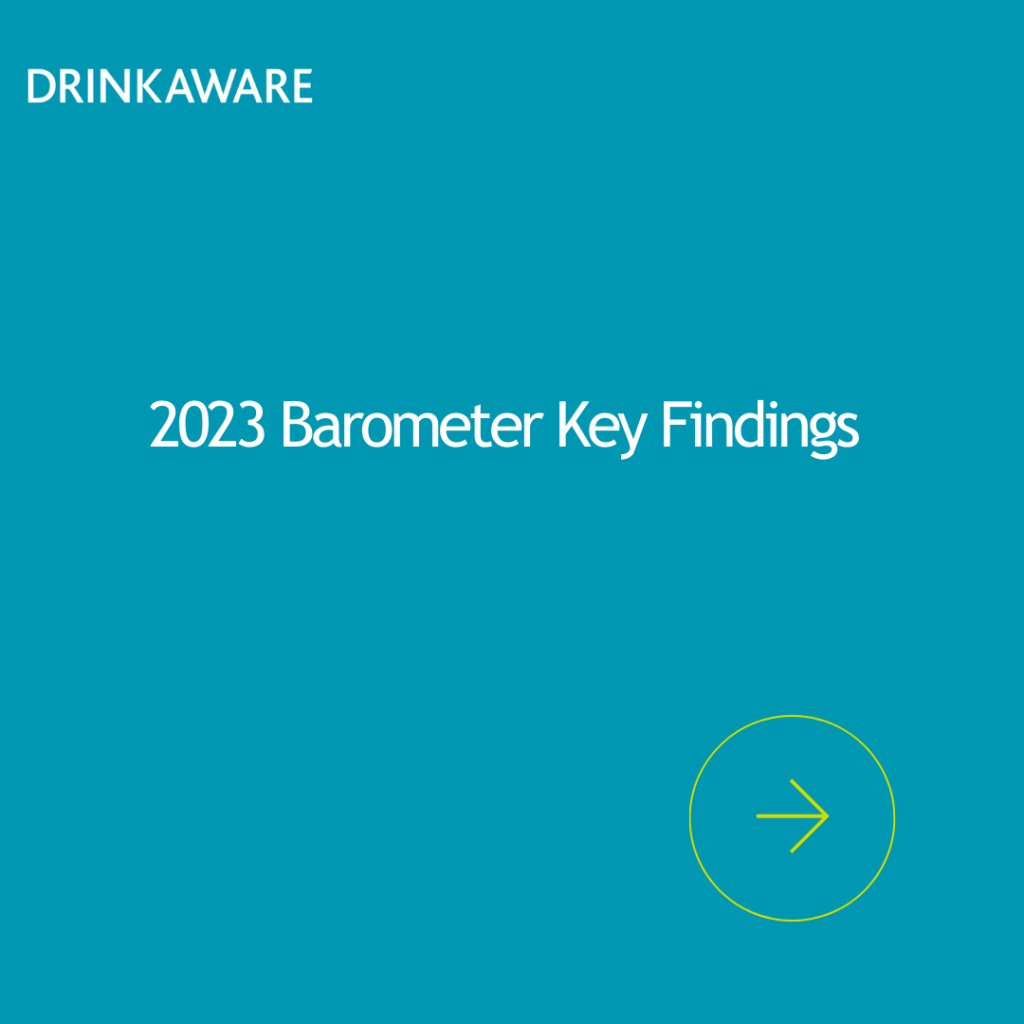
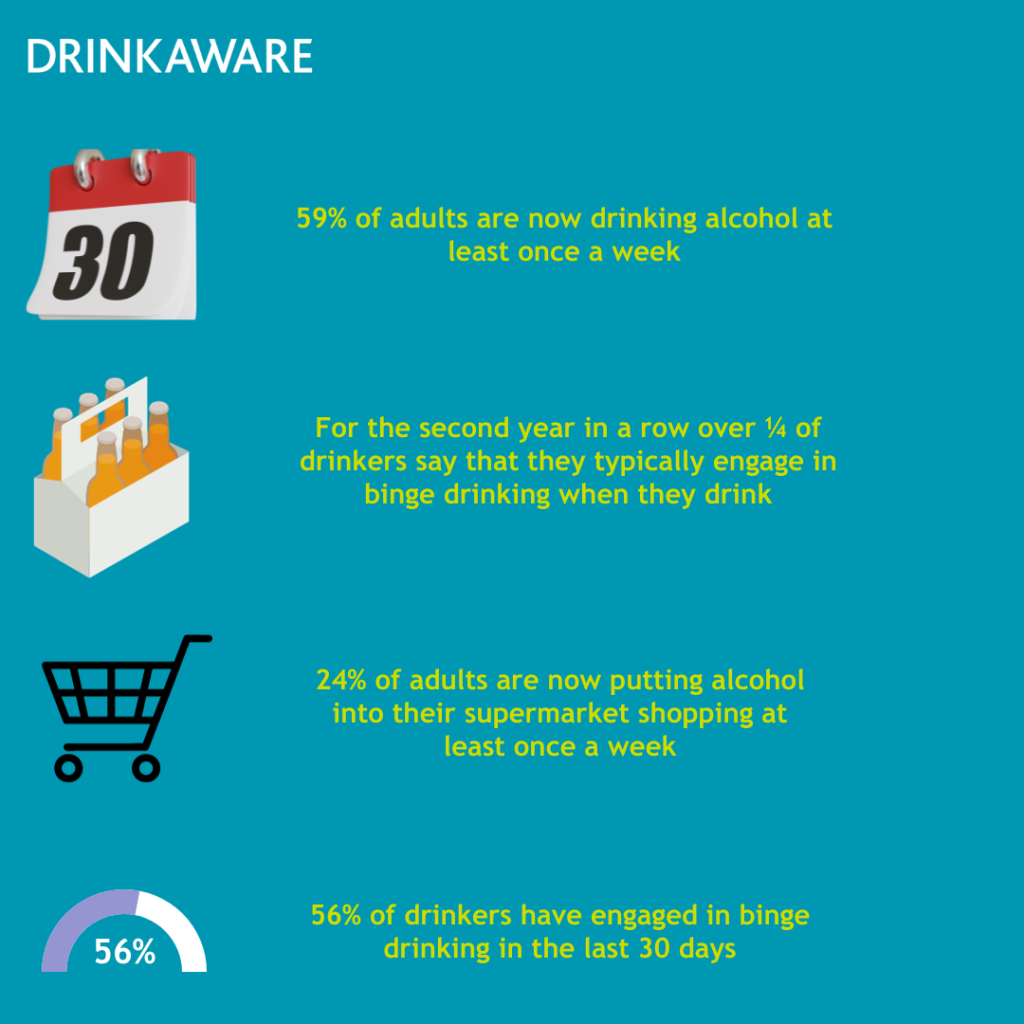
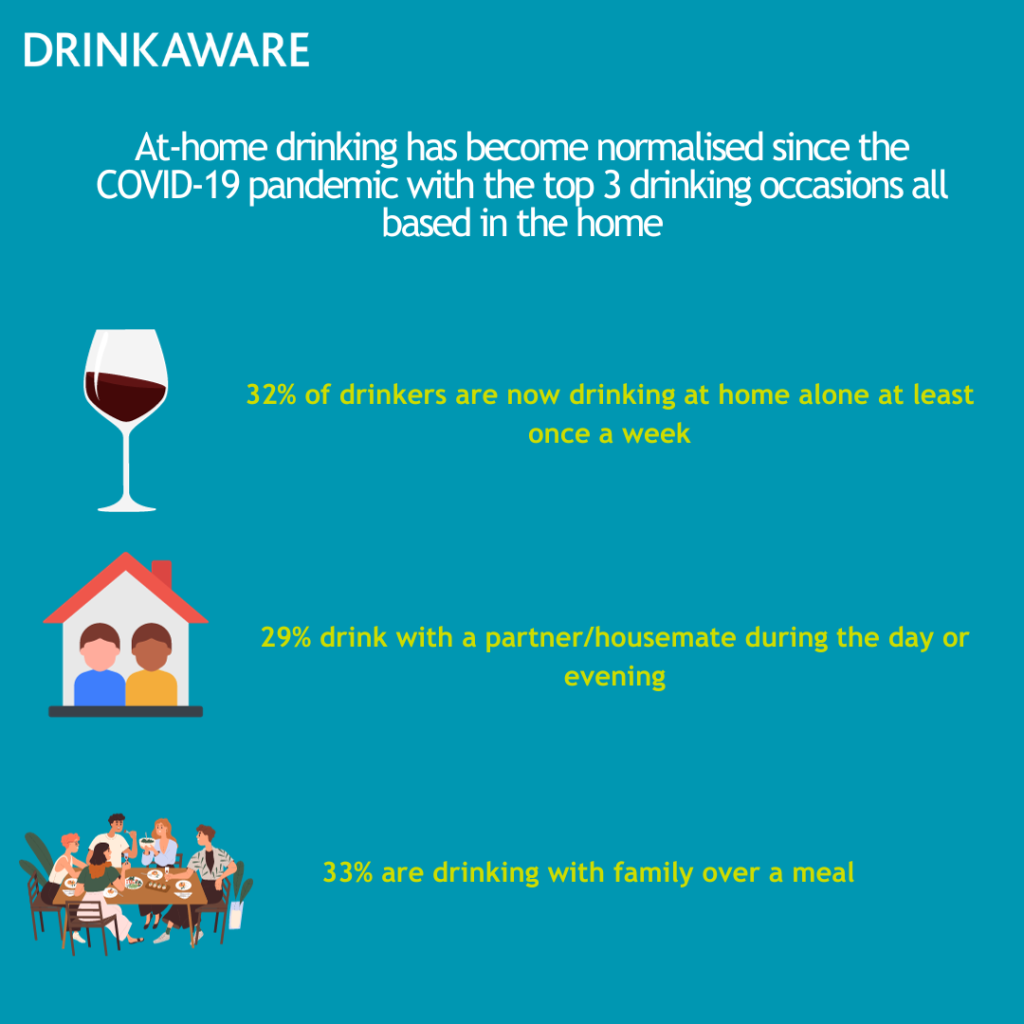
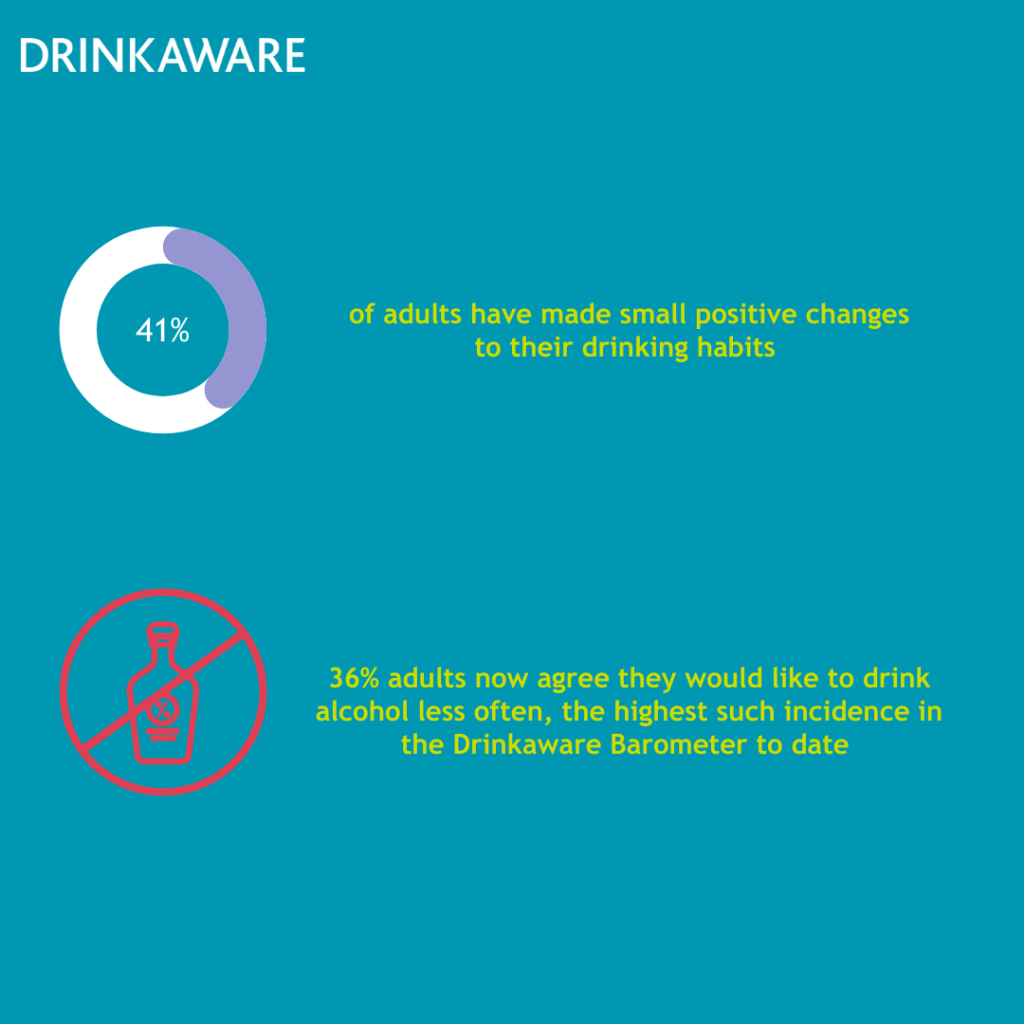
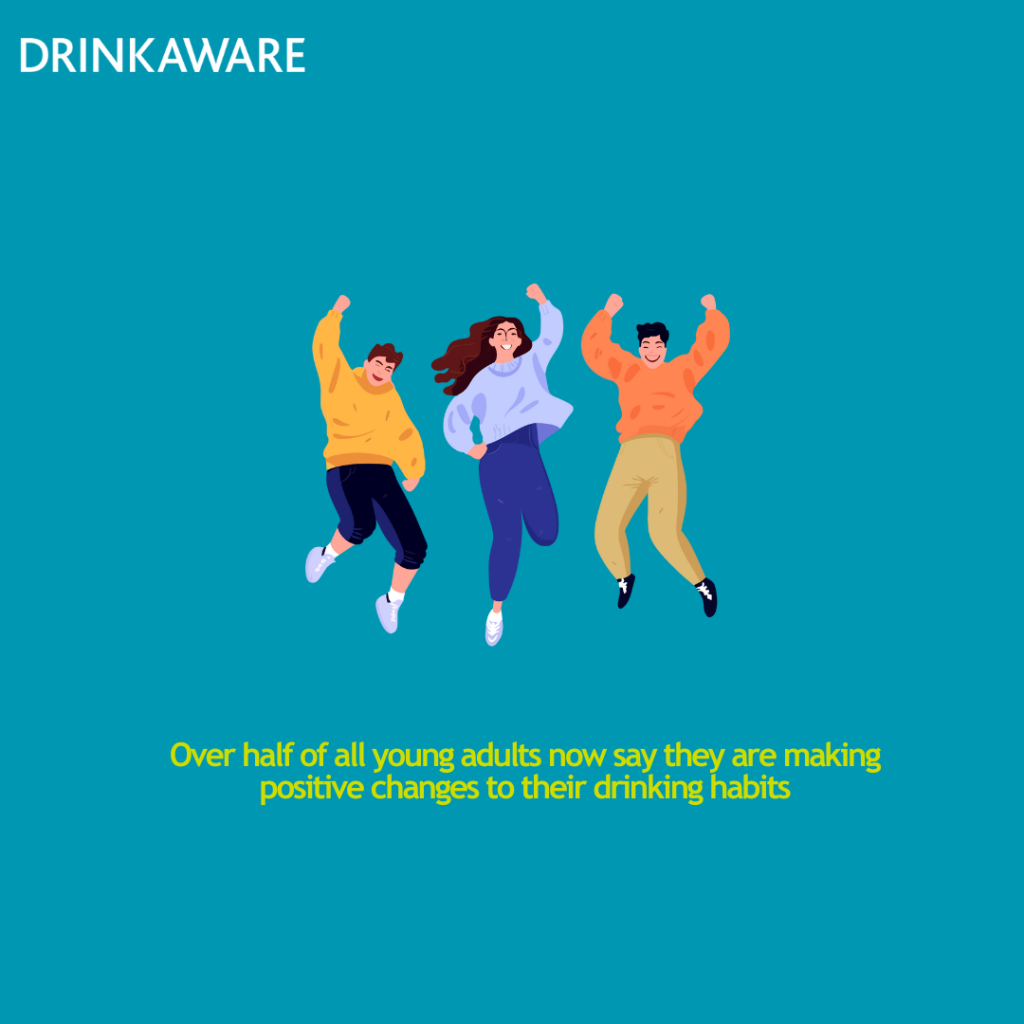
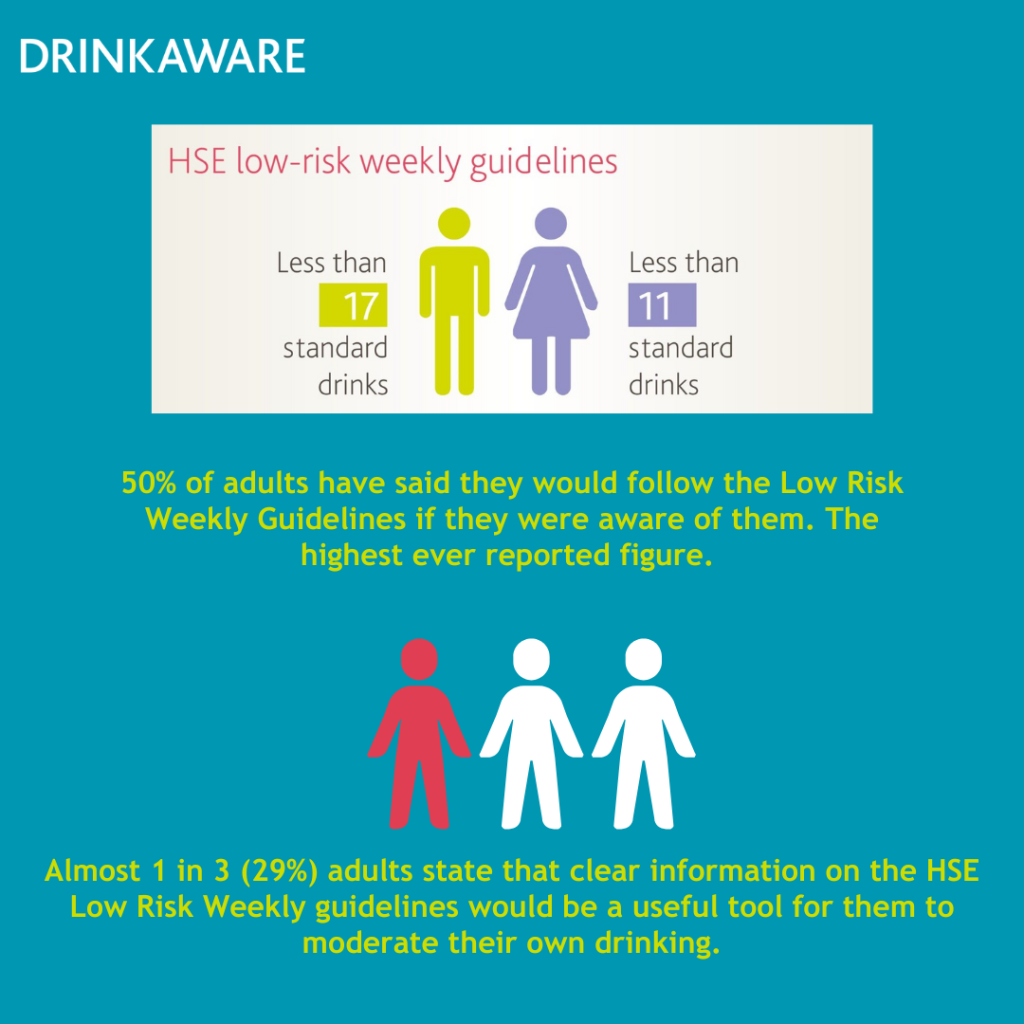
The annual Drinkaware Barometer* provides an overview of adults’ drinking behaviour in Ireland. The first round of its 2023 findings, as reported by the independent, national charity working to prevent and reduce alcohol misuse, provides a comprehensive overview of the attitudes and behaviours towards alcohol in 2023. The research reveals that positive indicators and behavioural shifts continue to grow, many to their highest level ever, however, when and how we drink continues to be an ongoing concern as evidenced by the following findings:
- For the fourth year in a row, over half of adults in Ireland drink alcohol on “at least a weekly basis” – this figure is now just shy of 60%**
- For the second year in a row over ¼ of drinkers say that they typically engage in binge drinking when they drink
- Also, for the second year in a row, well over half (56%) of adults who currently drink have engaged in binge drinking in the past 30 days
The research, carried out by Behaviour & Attitudes during July and August 2023 reveals a complex relationship between Irish adults and alcohol. As a nation we are experiencing a cultural shift regarding alcohol with evidence of positive intentions continuing to grow, however the “at least weekly” consumption levels remain high, and the figures for binge drinking continue to increase year on year.
Regular weekly drinking, as revealed by these figures, is now a clearly established norm that has steadily increased since the COVID-19 pandemic. These figures show a consistent upward trend since 2018 when the number of adult drinkers who drank at least weekly stood at 44% – a difference of 15% compared to the 59% who now say they drink on a weekly basis (or more) in 2023.
Binge drinking is defined as the consumption of 60 grams of pure alcohol or 6 standard drinks in one sitting. 1 in 4 Irish adults, when they do drink, are now typically binge drinking. Binge drinking increases the likelihood of a person experiencing both short- and long-term harms and the increasing levels of binge drinking being reported year-on-year through the independent national charity’s annual survey need to be urgently addressed.
These figures are released against the backdrop of continued cost-of-living pressures and the legacy of the COVID-19 pandemic. One objective of the Drinkaware Barometer is to explore in more depth the ‘why’ ‘where’ and ‘how’ of alcohol consumption in Ireland and this year continues to reveal interesting details. The top 3 most mentioned drinking occasions from the research are all based in the home, a trend that has become normalised since the COVID-19 pandemic, with 33% drinking with family over mealtimes or 29% drinking with a partner/housemate during the day or evening at least once a week. Potentially worrying is that 32% of drinkers are now drinking at home alone at least once a week, compared to 8% who report going out for a drink alone. With the data showing that almost one in four adults (24%) are now putting alcohol in their supermarket shopping at least once a week – despite the cost-of-living pressures – the centrality of at-home drinking, as well as the specific practices associated with drinking at home, are key to understanding alcohol consumption patterns and ultimately how to reduce and prevent alcohol-related harm.
However, while the cost-of-living pressures continue to cause difficulties for many, finances can be a significant influence to drink less with 45% citing personal finances as a general reason for doing so and 52% of drinkers that had reduced consumption saying they would rather spend their money on other things or 32% saying they can’t afford to drink as much as they used to. Overall, nearly 2/3 of adults (63%) cite physical health or fitness as a reason to drink less with 31% citing mental health as an influence for reduced drinking.
This year’s Barometer also uncovers several positive indicators which have been growing steadily year-on-year in relation to cultural attitudes and expectancies regarding alcohol in Ireland, including:
- 36% of adults now agree they would like to drink alcohol less often, the highest such incidence in the Drinkaware Barometer to date
- 41% say they have made small positive changes to their drinking habits in the past 30 days
- Both of these sentiments peak amongst those under 25 years, with 54% of 18–24-year-olds saying they would like to drink less often and 57% having made small positive changes
- The HSE low-risk weekly guidelines*** are now considered ‘reasonable’ by half of all adults
- The incidence of Irish adults who would follow the guidelines if they were aware of same has increased to 50% – the highest ever reported figure
Drinkaware CEO, Dearbhla O’Brien, comments:
“All data related to alcohol is nuanced and complex and cannot be examined in isolation, that is why it is not surprising to see both positive and negative trends emerging from this year’s Drinkaware Barometer. A core strength of our Barometer is the annual collection of data with a nationally representative sample of adults that allows us to clearly identify significant patterns, themes, and motivations around alcohol consumption. The continued growth in weekly drinkers means that almost 6 in 10 adults are now drinking alcohol at least once a week, and for the second year in a row over 1 in 4 drinkers are typically binge drinking when they do consume alcohol, despite the many negative short and long-term effects this can have on their health. With the rise in at-home drinking and with some potentially concerning drinking practices associated with drinking at home identified post-COVID-19 Pandemic, more needs to be done to curb these harmful patterns.
There is, however, room for optimism, with more people than ever before showing positive intentions when it comes to their own drinking. Most adults now believe that the HSE’s low-risk weekly guidelines are reasonable, and for the first time ever, over half of adults say they would follow them if they knew what they were. That said, with national awareness of the guidelines once again being almost non-existent (3%), there remains a job to be done in terms of educating, informing, and empowering the public when it comes to alcohol consumption with almost 1 in 3 adults (29%) stating that clear information on the guidelines would be a useful tool for them to moderate their own drinking.
Finally, it is very encouraging that the signs of a positive cultural shift in attitudes and expectations around alcohol continue to grow, particularly among young adult populations. Over half of those aged 18-24 now say they would like to drink less and 57% of younger adults have made small positive changes to their drinking habits in the last 30 days. We must continue to build on and sustain these green shoots to support and enable a societal shift regarding alcohol misuse.”
References
*The Drinkaware Barometer 2023 is a national population-based survey of 1,000 adults aged 18+ conducted by Behaviour and Attitudes in July/August 2023 and included a series of internationally recognised modules relating to alcohol consumption and mental health.
For more information on research projects and publications visit www.drinkaware.ie/research
** 59% of adults in Ireland said they drink at least once a week. 15% say they have drunk alcohol 2-3 times in the past 30 days, while 18% don’t drink – a figure which includes 9% who have not drank in the past 30 days and 9% who never drink alcohol.
***Drinking within the HSE Low Risk Weekly Alcohol Guidelines reduces your risk of alcohol-related health issues. The Low Risk Weekly Guidelines for adults are:
- Women: Less than 11 standard drinks (110g pure alcohol) spread out over the week, with at least two alcohol-free days
- Men: Less than 17 standard drinks (170g pure alcohol) spread out over the week, with at least two alcohol-free days
Binge drinking:
Binge drinking (or heavy episodic drinking) is consuming six or more standard drinks in one sitting, usually in a short space of time. Common standard drinks include a half pint of 4.5% lager, 100ml glass of 12.5% wine and a pub measure of 40% spirits.

